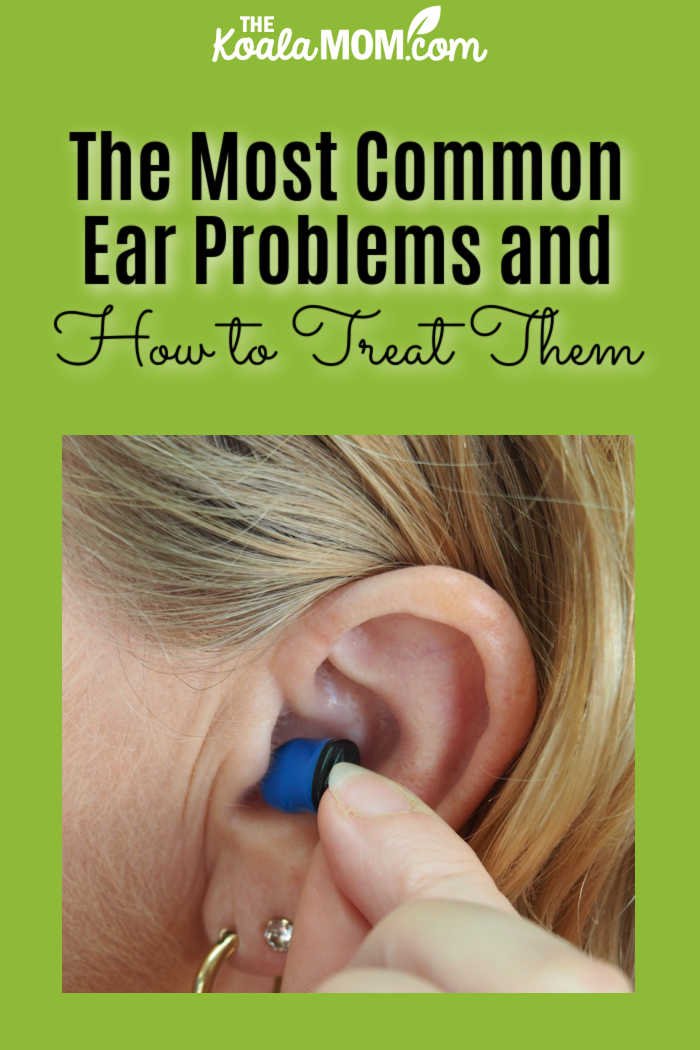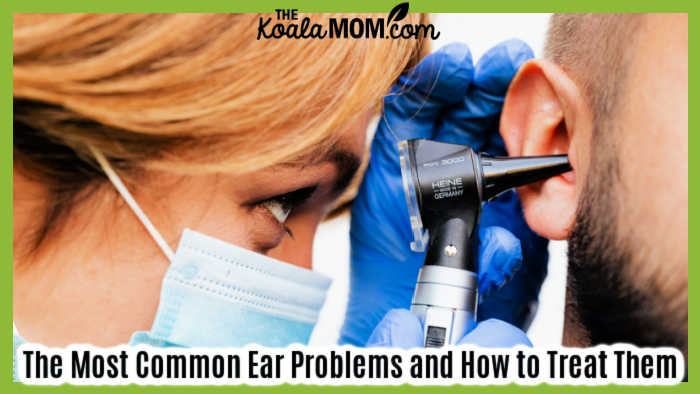Our ears are one of the most important sensory organs in our body, allowing us to hear and communicate. Unfortunately, they are also prone to a variety of issues that can cause pain and discomfort. From ear infections to tinnitus, there is a wide range of common ear problems that can affect people at any age.
In this article, we will explore some of the most common types of ear problems and how you can treat them with both medical intervention and lifestyle changes. With this knowledge in hand, you will be better equipped to prevent or manage these conditions so that your hearing remains clear for years to come.

Ear Infections
Ear infections are one of the most common ear problems that can affect people of all ages. An ear infection occurs when a bacterial or viral infection affects the middle ear, which is located behind the eardrum. This area can become swollen or filled with fluid, leading to pain and discomfort.
Symptoms of an ear infection can include fever, dizziness, nausea, and hearing loss. ENT clinics and general practitioners are the best first step for diagnosis. Treatment for ear infections typically involves antibiotics or medications to reduce swelling or pain. Depending on the severity of the infection, surgery may be necessary as well.
A lot of the pain from an ear infection can be managed by using warm compresses and over-the-counter medications. Still, you want to seek professional medical attention as soon as possible to prevent further complications.
Tinnitus
The second most common ear condition is tinnitus, which is a constant ringing or buzzing in the ears. It is often caused by prolonged exposure to loud noises and can be either constant or intermittent. There is no cure for tinnitus, but there are treatments that can help manage the symptoms. For instance, cognitive behavioral therapy can help reduce stress and make it easier to cope with the ringing.
To alleviate the constant buzzing of tinnitus, sound therapy is often used to provide relief by covering up the noise. However, the duration and severity of tinnitus differ from one person to another, hence it is essential to seek medical advice for personalized treatment options.
Meniere’s Disease
The third most common ear condition is Meniere’s disease, which is an inner ear disorder that can lead to vertigo, hearing loss, and ringing in the ears. It is caused by a buildup of fluid in the inner ear that affects balance and hearing. Treatment for Meniere’s disease typically involves medications that help reduce the symptoms, such as diuretics or corticosteroids. Surgery may also be necessary in some cases if other treatments do not provide relief.
On the other hand, lifestyle changes can also help reduce the symptoms of Meniere’s disease. Avoiding caffeine and salt in your diet is one way to lessen the severity of the condition. Additionally, using earplugs or noise-canceling headphones can help protect your ears from loud noises and prevent further damage.
Hearing Loss
Hearing loss is another common ear problem that can affect people of all ages. It occurs when there is damage or deterioration in the inner ear, leading to a decreased ability to hear sounds. Causes of hearing loss can range from exposure to loud noises to age-related changes in the inner ear. Treatment for hearing loss typically involves wearing a hearing aid or other sound amplification devices.
For example, someone who has hearing loss in both ears can wear two different devices to help amplify sounds and improve their overall quality of life. In some cases, surgery may also be necessary to repair any damage in the inner ear.
Lifestyle changes such as avoiding loud noises or using earplugs can also help prevent further hearing loss. Knowing that there needs to be a balance between noise protection and sound amplification is important when managing hearing loss so that it doesn’t worsen.

Glue Ear
When it comes to glue ear, this is a condition in which a thick fluid builds up behind the eardrum. It is often caused by inflammation or allergies and can lead to reduced hearing, pain, and discomfort. Treatment typically involves taking medications to reduce inflammation or using antibiotics if an infection is present. Surgery may also be necessary for glue ear to remove excess fluid in the middle ear.
In some cases, lifestyle changes can help reduce the symptoms, such as avoiding allergens that may trigger inflammation or reducing stress. Some people can also benefit from using a decongestant to reduce the build-up of fluid in the ear.
Ear Wax Blockage
Having an ear wax blockage is another common problem that can occur when too much wax builds up in the ear canal. This blockage can cause hearing loss, pain, and discomfort. Treatment typically involves using ear drops to soften the wax so it can be removed easily or having a doctor remove it with special instruments.
It is important to seek medical advice if you think you may have ear wax blockage as it can lead to serious complications if left untreated. Even more so, when the wax becomes impacted, it can be a painful experience and should always be treated by a professional. The physician will use either a vacuum or special instruments to remove the blockage, both of which are safe methods.
Middle Ear Fluid
Middle ear fluid occurs when an infection or inflammation causes a buildup of fluid in the middle ear. It is often caused by allergies or viruses and can lead to hearing loss, dizziness, and pain. Treatment depends on the cause but may involve taking antibiotics or antiviral medications for infections. In some cases, surgery may be necessary to remove excess fluid in the middle ear.
Also, lifestyle changes such as avoiding allergens or using humidifiers to reduce the risk of infection may help improve symptoms. A lot of people can also benefit from using decongestants to reduce inflammation and clear the fluid in the middle ear.

It is important to be aware of the various ear problems that can affect people of all ages. Ear infections, tinnitus, Meniere’s disease, hearing loss, glue ear, and wax blockage are just some issues you may encounter.
Fortunately, there are treatments available for each condition which range from medications to surgery depending on the severity. Additionally making lifestyle changes such as avoiding loud noises or reducing allergens can help reduce symptoms and prevent further damage.
It is always best to consult a doctor if you think you may have an ear problem so that it can be properly diagnosed and treated before any complications arise.

No Responses Yet